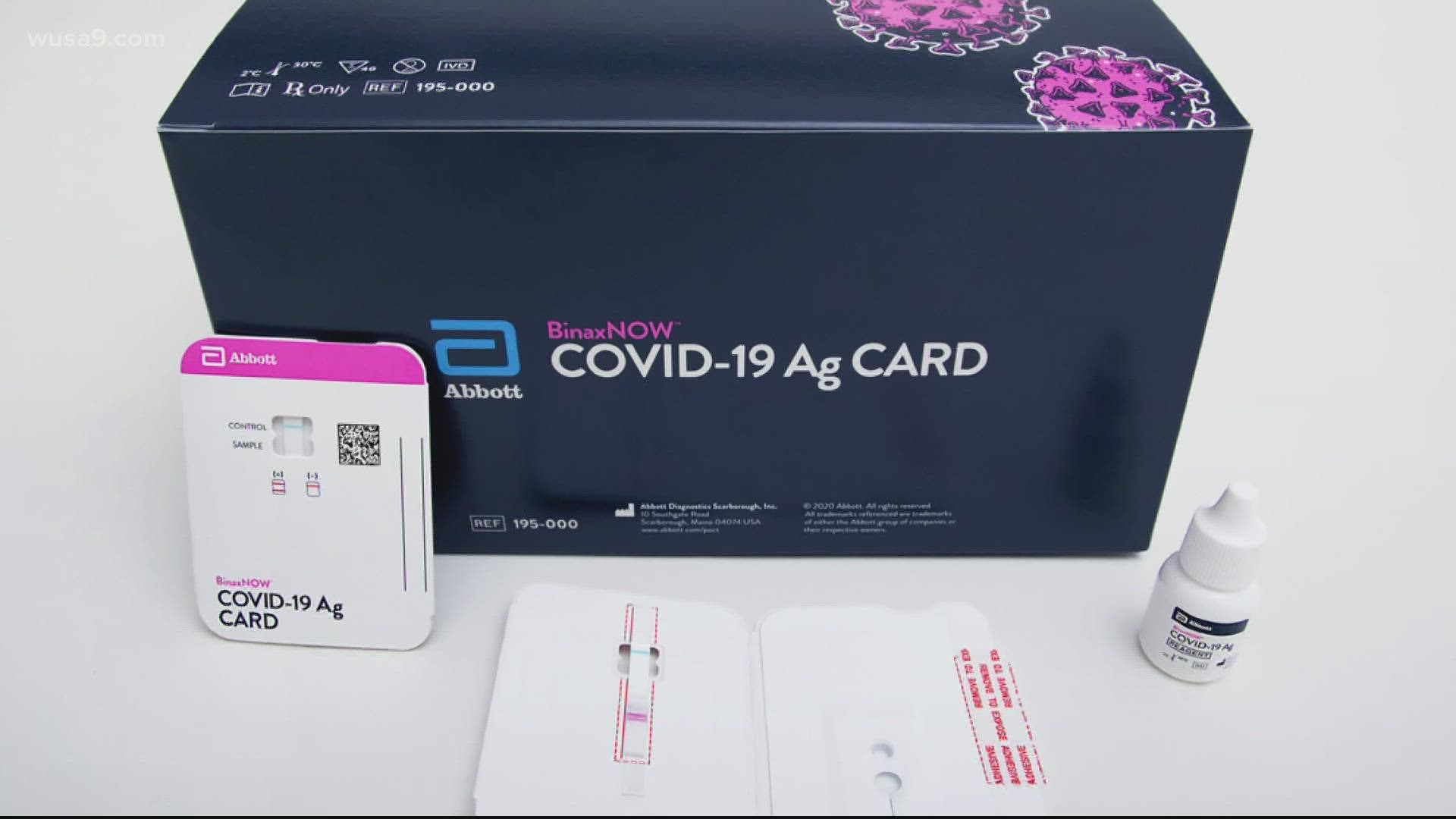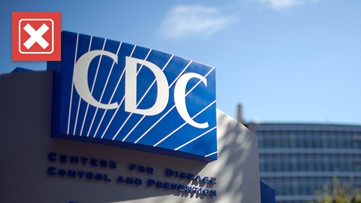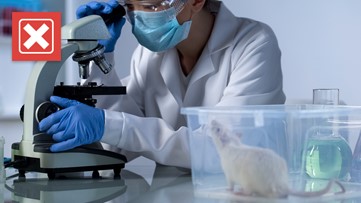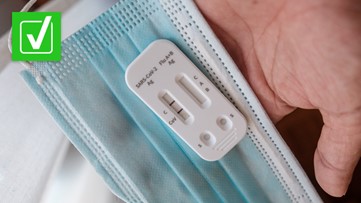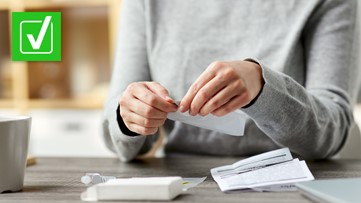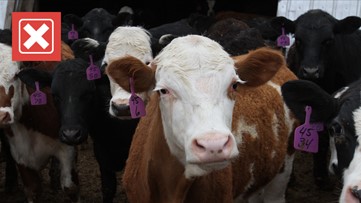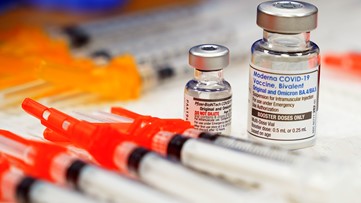WASHINGTON — The Biden administration has launched their website to get at-home rapid COVID-19 tests to more Americans. If you signed up to get your tests, they should arrive at your doorstep within two weeks. But with winter weather hitting the D.C. region, we verified: Are the tests impacted when left outside in the cold? Here's what we learned.
THE QUESTION
Do cold temperatures affect the results of an at-home COVID antigen test?
THE ANSWER
The answer may vary depending on the brand.
THE SOURCES
- Food and Drug Administration
- iHealth Labs, the maker of iHealth COVID-19 test
- Abbott, the maker of the BinaxNOW antigen test kit
- Quidel, the maker of the QuickVue at-home test
- Ellume Health, the maker of Ellume Covid-19 home test
- Dr. Amesh Adalja, a Senior Scholar at the Johns Hopkins Center for Health Security and an infectious disease physician
THE PROCESS
The Biden administration has started taking orders for free at-home COVID tests, a day before the website was scheduled to officially launch.
The website, COVIDTests.gov, now includes a link for Americans to order up four at-home tests per residential address, to be delivered by the U.S. Postal Service. The orders are then submitted at special.usps.com/testkits.
Here's what you need to know about at-home rapid COVID-19 test kits and how cold weather might impact them.
Dr. Adalja explains why the temperature range is listed in the first place.
He said, “When a test kit gets licensed by the FDA. There are a lot of parameters that the FDA evaluates and a lot of data that the companies have to submit they'll say what temperature they stored it at but I don't think it's the end of the world if something deviates from that temperature."
WUSA9 checked a few popular test kits and reached out to some of the companies who manufacture the kits to get a few more guidelines.
On iHealthLab’s website, the fine print says to store in a dry location, between 36 degrees and 86 degrees Fahrenheit. It warns, any extended exposure of the test kit to temperatures beyond this range, may affect the quality of test results.
A spokeswoman for Abbott writes, "For BinaxNOW, it's between 35.6 and 86 degrees F, and the test should be kept within this range. But if the test is stored outside the temperature range for a relatively short period of time – for a couple of hours up to a day or two – it will be fine to use, and it's important is that test and its components are used at room temperature."
An Ellume spokesperson told WUSA9, “...if the product is exposed to extreme temperatures it could damage the test and trigger a “Test Error” rather than a false positive.
A Quidel spokesperson said, "The QuickVue At-Home OTC COVID-19 Test should always be stored upon receipt according to the temperature printed on the kit box (59°F to 86°F or 15°C to 30°C). Quidel has performed studies that demonstrate the product performs as expected under different temperature conditions (i.e., heated and frozen conditions) encountered during shipping. If you have any concerns about the shipping conditions of your test kit, please contact the retailer where you purchased the test."
The FDA is the agency that regulates medical devices and it says all authorized tests “...should be stored and used in accordance with the authorized labeling.” Adding, “In most cases, the authorized instructions for use include that the test should be brought to room temperature prior to use.”
So the bottom line is – it depends on the brand of the test. So read the package and follow the instructions.
The FDA has more details on Antigen tests here. You can look up instructions for use by entering OTC in the search bar.
Lucira has quite a bit of data regarding the temperature testing they did on pages 20 and 21
Cue’s label specifically says: “Store the unopened Cue COVID-19 Test Cartridge Pack and the foil pouches inside the pack in the temperature range shown in the table below. Do not use a cartridge that has been stored outside of this temperature condition.”
SD Biosensor says: “Store the kit at 36-86 °F / 2-30 °C and protect from direct sunlight. The expiry date of the materials is indicated on the external packaging. Do not freeze the kit.”
CareStart says: “Store the test kit as packaged between 1 ~ 30°C. The test device must remain in the sealed pouch until use. Do not freeze any contents of the kit.”
InBios says: “The kit is designed to be stored at room temperature (15-30°C or 59-86°F) for the duration of its shelf life. Exposure to temperatures over 30°C or 86°F can impact the performance of the test and should be minimized. The kit should not be frozen or refrigerated.”
ACON Flowflex says: “The kit can be stored at temperatures between 36-86°F (2-30°C). The test is stable until the expiration date is printed on the sealed pouch. The test must remain in the sealed pouch until use. DO NOT FREEZE. Do not use after the expiration date.”
